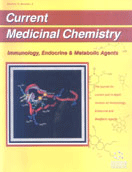Abstract
Pancreastatin (PST) is a chromogranin A (CgA)-derived peptide that was first isolated from the porcine pancreas. Although the physiological role of PST has yet to be fully established, a multitude of effects have implicated PST in the modulation of secretion and the control of energy metabolism, with a general counter-regulatory effect to that of insulin. Thus, PST has a glycogenolytic effect in the liver and a lipolytic effect in the adipocyte. Besides, PST inhibits leptin and increases UCP-2 expression in isolated adipocytes. In liver and adipose tissue, specific PST receptors and PSTinduced signal transduction have been characterized, involving a Gq-PLCβ-calcium-PKC pathway, providing a basis for the molecular mechanisms of the metabolic effects of PST, and the cross-talk to the insulin receptor signalling. Increased levels of PST, which correlate with those of catecholamines, have been found in insulin resistance states, such as gestational diabetes, and essential hypertension. Our current hypothesis is that PST plays a role in the physiology of stress, by regulating the supply of energy to the body. In this line, PST could play a role potentiating the metabolic effects of catecholamines, and therefore playing also a possible role in insulin resistant states with increased sympathetic activity.
Keywords: pancreastatin, chromogranin a, energy metabolism, insulin resistance, g protein, gpcr, calcium, pkc, no
 1
1








